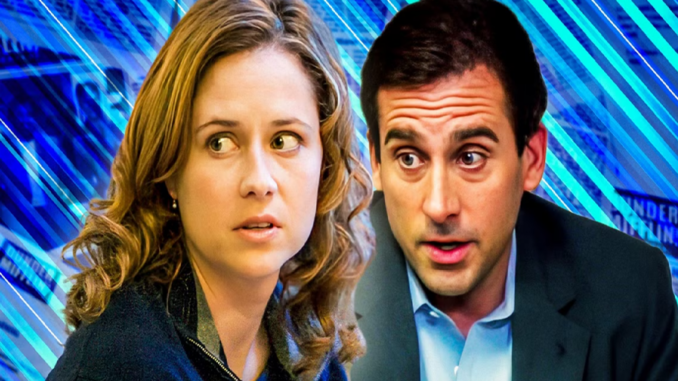
In the upcoming Office reboot, the same in-universe documentary crew that filmed the Scranton branch of Dunder Mifflin for nine years will turn their cameras on a dying Midwestern newspaper. The series will follow a new publisher attempting to resurrect the paper with the help of volunteer reporters. Domhnall Gleeson and Sabrina Impacciatore will star in the series, and Melvin Gregg, Chelsea Frei, and Ramona Young have been recruited to round out the supporting cast of The Office‘s reboot. There’s a lot from the previous series that The Paper has to emulate to succeed, but there’s one aspect it should avoid.
The Office Reboot Can’t Take A Whole Season To Find Its Tone Like The US Remake Did
TV Shows Don’t Have Time To Find Their Feet Anymore
Although it would eventually become a massive success, the U.S. remake of The Office didn’t hit the ground running. In its first season, the remake was too faithful to the original UK version of The Office. It copied the drab lighting and cynical tone of Ricky Gervais and Stephen Merchant’s previous series, and it didn’t work for the American setting. Throughout its second and third seasons, the U.S. version of The Office became a more upbeat and hopeful show, and that led to greater success. But the reboot won’t have the freedom to grow like that.
The Office is one of many 2000s sitcoms that took some time to find its feet. Parks and Recreation and It’s Always Sunny in Philadelphia both had a shaky season 1 and didn’t find their voice until season 2 or season 3. But in today’s TV landscape, with a deluge of new content dropping on streaming services constantly, audiences are spoiled for choice, so TV shows don’t have the luxury of finding their feet. They have to be great on arrival, regardless of the genre or format, or they might die. The Office reboot needs to find its feet in season 1.
Why The Office US Changed So Much Between Seasons 1 And 2
The Office Made Michael Scott More Sympathetic After Season 1
The U.S. remake of The Office changed drastically between seasons 1 and 2. Season 1 performed well enough to score a season 2 renewal, but it wasn’t a huge ratings success and it received mixed reviews from critics. Going into season 2, the writers addressed many of the complaints about season 1 and it came back as a very different (and much better) show. The biggest problem with season 1 is that The Office had made Michael Scott the villain, and had made everyone else in the office unnecessarily antagonistic towards him.
In season 2, Michael Scott becomes more sympathetic, and the show makes everyone a little nicer to him. In episode 3, “Office Olympics,” Jim gives Michael a medal to pick up his spirits after getting ripped off on his condo purchase. In episode 9, “Email Surveillance,” Jim sings karaoke with Michael to ease the tension after he shows up to a party uninvited. In episode 18, “Take Your Daughter to Work Day,” Michael’s childhood TV appearance reveals his insecurities about not having any friends. These endearing little touches made viewers care about Michael and gave the show its longevity.
The Office’s Newspaper Reboot Is Risky, So It Must Hook Viewers Fast
It’s Setting The Bar High By Taking Place In The Office Universe
If The Office’s reboot is disappointing or a little underwhelming at the start, many might prefer to sit the new show out and revisit the original series instead. The Paper needs to hook viewers fast because audiences have plenty to choose from now, and the inevitable comparisons to The Office won’t do it any favors if it’s not great. Unfortunately, the current TV landscape doesn’t allow shows to slowly find their tone and learn from their mistakes. Hopefully, The Paper can show its best qualities right from the start.
